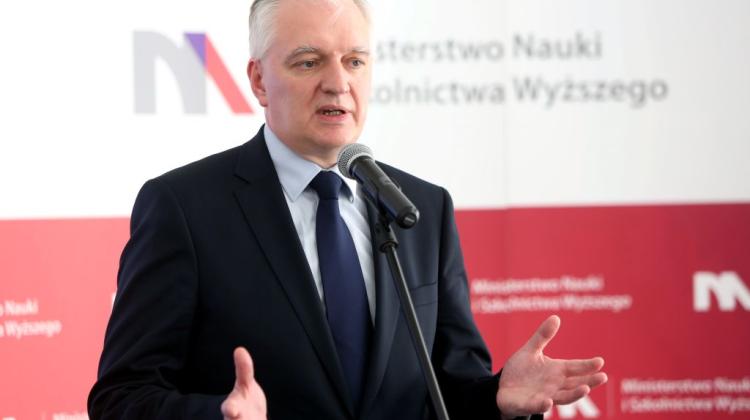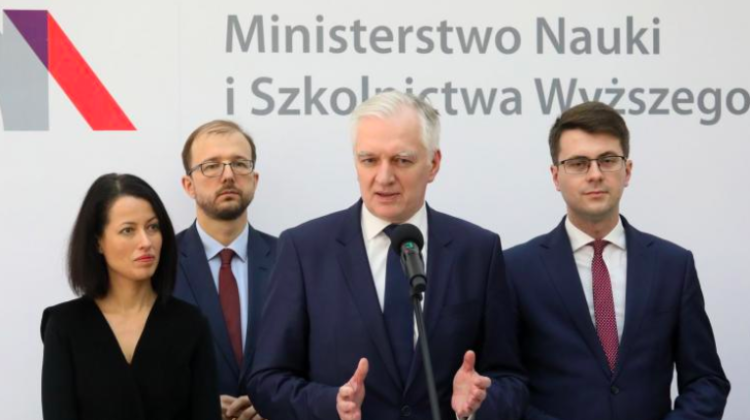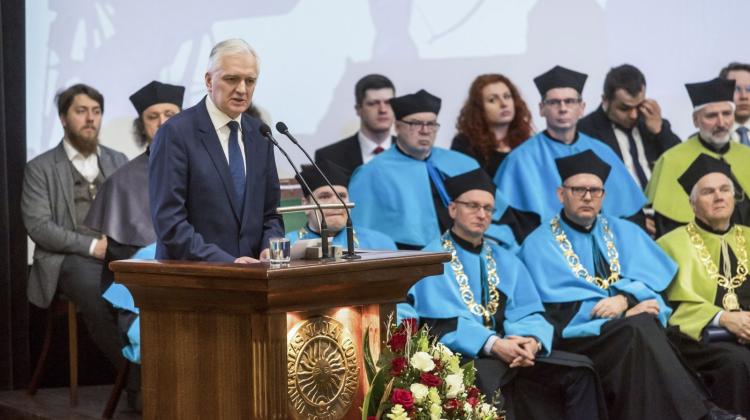Gowin: The law on innovation means relieves for the companies and a motivation for scientists

Tax breaks for companies investing in research and development, as well as motivation for scientists to engage in implementation - according to Deputy Prime Minister Jarosław Gowin these are the benefits of the so-called small law on innovation, the draft of which the government adopted last Tuesday.
A bill to amend certain laws defining the conditions for conducting innovative activity (i.e. the small law on innovation) has been submitted by the Minister of Science and Higher Education.
"We hope that through this law will help increase spending on research and development. Firstly, the law will offer real incentive in the form of tax relief for entrepreneurs who want to cooperate with science. Secondly, scientists themselves will also have a greater motivation to engage in implementation" - commented in an interview with PAP Deputy Prime Minister, Minister of Science and Higher Education Jarosław Gowin.
"The law is an important condition for implementation of the Plan for Responsible Development. If we want to have an innovative economy, we need to increase the range of cooperation between science and business, and this cannot be done without real tax relief and without a reduction in bureaucracy" - said Gowin.
"We introduce real tax beaks, which are sorely lacking in the current law" - emphasised Deputy Prime Minister. He added that this included the abolition of the tax in kind on intellectual and industrial property, increasing the amount of deductions of the costs of R&D activities and doubling the time - from three to six years - when taxpayers can deduct expenses for R&D activities. "And in the case of start-ups we anticipate the possibility of cash return of 18 percent expenditures, as long as the company does not generate any profits in a given year" - he said.
Jarosław Gowin noted that the amendment also includes an area of changes that relate to science itself. "First of universities, like research institutes, have been obliged to spend 0.5 percent of their grants for maintaining research capacity on research commercialisation. The inability to commercialise is in fact one of the Achilles\' heels of Polish science" - the minister said.
He added that the amendment would also simplify and remove bureaucracy from the procedure of the so-called enfranchisement of scientists, in which they receive intellectual property rights to their research results. "So far, the university had to compulsorily carry out the process of enfranchisement and implement the complicated and time-consuming procedure regardless of whether the researcher was interested in the commercialisation of his invention or not" - he concluded. Under the proposed regulations, scientists will have to inform their university that they are interested in commercialisation. Only then the difficult enfranchisement procedure will be initiated. Gowin assured that this change will not impede scientists, but greatly facilitate the work of universities.
"Besides, we remove the time limit in which the inventors are entitled to share in the benefits from commercialisation. Today it is five years. Very often the invention is not profitable yet after five years. Commercialisation takes much longer. If we remove this five-year limit, it will be a huge incentive for scientists to engage in research and commercialisation"- Deputy Prime Minister added.
"The law was created under the aegis of the Ministry of Science and Higher Education, but it was created not only by our experts, but also the team and the Innovation Council. It is an example of a project, in which we go beyond the closed walls: in total, 6-7 ministries were involved. In addition to the Ministry of Science, the role of the Ministry of Finance was particularly important" - he said.
PAP - Science and Scholarship in Poland, Ludwika Tomala
lt/ agt/ zan/
tr. RL
Przed dodaniem komentarza prosimy o zapoznanie z Regulaminem forum serwisu Nauka w Polsce.


















